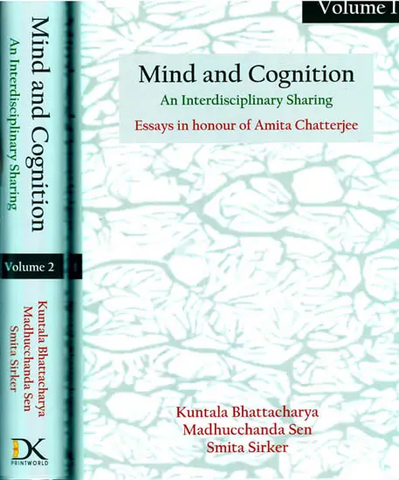Your cart is empty now.
The critical appropriation of tradition in philosophy, particularly in the works of Sankara (also spelled Shankara), Emmanuel Levinas, and their views on ethics and apophatic (or apophasis) theology, presents an interesting intersection of Eastern and Western thought. While both philosophers engage deeply with the concept of tradition and its relation to human experience, their approaches to ethics, the nature of the self, and the role of language and silence reveal unique tensions and harmonies. Let's explore each of these ideas in the context of their works:
Shankara (Sankara) and the Tradition of Advaita Vedanta
Shankara was an 8th-century philosopher and theologian who is most famous for his consolidation and advocacy of Advaita Vedanta, a non-dualistic school of thought within the broader tradition of Vedanta, one of the six orthodox schools of Hindu philosophy. His critical appropriation of tradition can be seen in the way he interprets the Upanishads, Bhagavad Gita, and Brahma Sutras to emphasize that the ultimate reality (Brahman) is non-dual, beyond attributes, and transcendent.
- Ethics in Shankara’s Philosophy: For Shankara, the ethical dimension of life is closely tied to knowledge (jnana). He viewed human suffering and ethical dilemmas as consequences of ignorance (avidya) of the true self, which is ultimately one with Brahman. Shankara’s ethics, therefore, are not grounded in a moral code or external duties but in self-realization—the realization of the self’s non-difference from Brahman.
- Apophatic Theology (Apophasis): Shankara’s method is fundamentally apophatic—he uses negation (neti-neti, meaning "not this, not this") to describe Brahman, the ultimate reality, which is beyond all description and conceptualization. This apophatic approach emphasizes the ineffability of the absolute and shows that ultimate truth can only be approached by negating all limitations of language and thought.
Thus, Shankara’s critical appropriation of tradition lies in his interpretation of the sacred texts to dismantle dualistic views of reality and advocate for a direct experience of the non-dual Brahman, often through the intellectual and meditative practices of Vedanta.
Emmanuel Levinas and the Ethical Face of the Other
Emmanuel Levinas, a 20th-century French philosopher, is well-known for his existential and ethical philosophy, which presents a radical departure from traditional Western metaphysical systems. His work centers on the face-to-face encounter with the "Other" and the ethical responsibility that arises from it.
- Ethics in Levinas's Philosophy: Levinas challenges the tradition of Western philosophy, particularly the tradition of metaphysics, which he argues has often placed abstract, impersonal concepts at the center of philosophical inquiry. Instead of focusing on knowledge or the subject-object relation, Levinas prioritizes ethics—the ethical relation to the Other is the primary condition for human existence. He famously asserts that "the face" of the other person exposes one to an infinite responsibility, which cannot be avoided or rationalized. Ethics, for Levinas, is grounded in the unspoken and ineffable encounter with the other, who calls the self into responsibility.
- Apophatic Approach in Levinas: While Levinas does not use the word "apophatic" directly, his philosophy aligns with apophatic traditions in its emphasis on the ineffability of the ethical relation. The face of the Other is beyond totalization, conceptualization, or definition. The self is called to respond to the Other's vulnerability and alterity, but this encounter cannot be captured by abstract categories or theoretical systems. This experience of the Other is, in many ways, an apophatic moment—it transcends any description or knowledge of the other, insisting on the ethical responsibility of the self.
Levinas's critical appropriation of Western tradition critiques the objectification of the Other in traditional metaphysical systems (especially Cartesianism) and elevates the ethical dimension of human relationships. His work emphasizes that true philosophy begins not with the self but with the face of the Other.
Comparing Shankara and Levinas: The Ethical and Apophatic Dimensions
While Shankara and Levinas are from different cultural and philosophical traditions, they share a common interest in the ethical and apophatic dimensions of human existence.
-
Ethics: Both philosophers challenge conventional ethical systems. For Shankara, ethics is closely related to self-realization and the knowledge of the self’s non-difference from Brahman. This realization dissolves the barriers between self and other, leading to an ethical life grounded in understanding the ultimate unity of all. Levinas, on the other hand, places the ethical relationship with the Other at the center of philosophy. For him, ethics is not a matter of achieving knowledge but responding to the infinite responsibility to the Other, a responsibility that is inescapable and without limit.
-
Apophaticism: Both philosophers employ apophatic approaches in their philosophy. Shankara uses negation to point beyond the limitations of language and thought, suggesting that Brahman is ineffable and cannot be fully grasped by human concepts. Similarly, Levinas’s emphasis on the face-to-face encounter points to a moment of radical otherness that cannot be captured by language or reason. The Other remains beyond the self's total grasp, and the ethical responsibility to the Other is a call that exceeds conceptualization.
-
Tradition: Shankara’s appropriation of tradition is both critical and affirming—he challenges dualistic interpretations of the Upanishads but remains firmly within the Vedantic tradition. Levinas’s appropriation of Western tradition, especially the Western metaphysical tradition, is much more radical. He critiques the entire tradition of Western philosophy for its tendency to reduce the Other to a concept or object, and instead, he calls for a reorientation toward the ethical encounter with the Other.
Delivery and Shipping Policy
- INTERNATIONAL SHIPPING
- Rs.1000-1100/kg
- ESTD. Delivery Time: 2-3 weeks (depending on location)
- Bubble Wrapped with Extra Padding
- NATIONAL SHIPPING
- NCR: Rs. 30/half kg
- Standard: Rs. 80/half kg
- Express shipments also available on Request
- ESTD. Delivery Time: Ranging from 1-4 days up to 7 business days (Depending on your choice of Delivery)
- TRACKING
- All orders; national or international, will be provided with a Tracking ID to check the status of their respective orders
- Depending on the Shipping Service, Tracking ID may be used on their respective tracking portals
Frequently Asked Questions (FAQs)
Domestic Shipping: 3-4 Days (after shipping)
International Shipping: 1-2 weeks (based on your location)
You will receive an email once your order has been shipped or you can email us if you didn't receive tracking details (info@mlbd.co.in)
Every book that we sell is the latest edition except all the rare books
Yes, we do provide free shipping, only on domestic orders (within India) above Rs.1500










![A HISTORY OF INDIAN PHILOSOPHY [5 VOLUMES] by Surendranath Dasgupta](http://www.motilalbanarsidass.com/cdn/shop/products/HISTORYOFINDIANPHILOSOPHY_large.jpg?v=1675238163)





